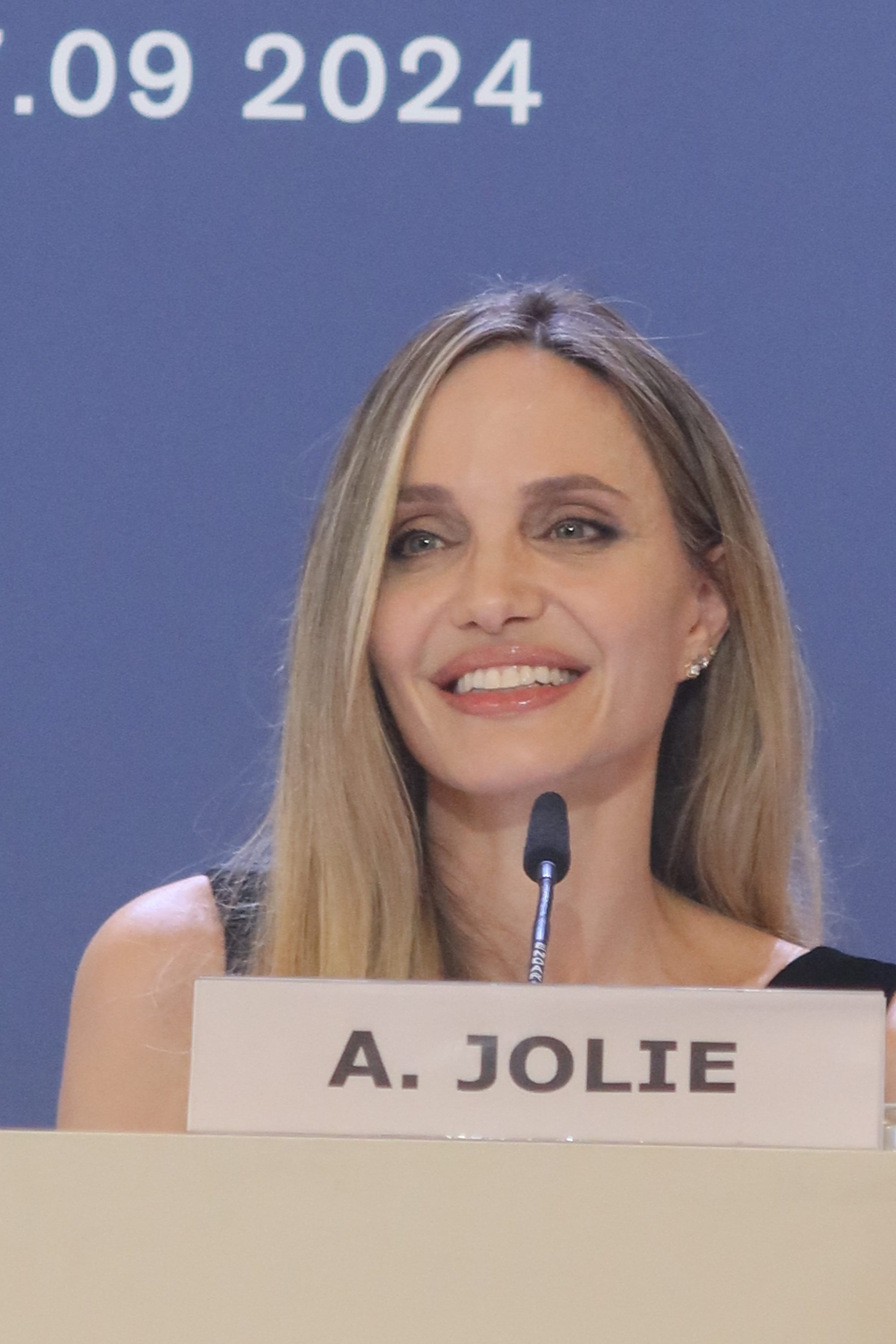
Angelina Jolie and ‘Maria’ Director Pablo Larrain Talk ‘Divas’
The film by Pablo Larrain dedicated to Maria Callas, presented at the 81st Venice International Film Festival and simply titled “Maria”, is a heartfelt tribute to the singer — painful, sad and clouded with tears.
“I have been a fan of Maria Callas since I was a child,” said the director during the Aug. 30 press conference. “As I grew up, I was surprised that there weren’t any films about opera singers. When I decided to make one about Callas, I was fortunate enough to involve Angelina and find a script that was beautifully written. The film is a celebration of her life, her work, and her music, of course. Having Angelina Jolie was a stroke of luck because only a Diva like her could bear the weight of portraying another Diva; she could dare to play her and sing the arias that made Callas famous.”
Jolie commented, “Diva is a word with very negative connotations.” The actress-director is extremely thin and ethereal, with long blonde hair covering a bare back adorned with tattoos, her face fragile yet resolute. “But I learned the true meaning of this definition from Callas, from (the Bellini aria) ‘Casta Diva.’ She was one of the hardest-working people for her career; the composers who created opera music know what it means.”
Jolie used all her discipline and perfectionism for her character, singing from the film’s very first scenes. The director insists on close-ups of her face, particularly her famous mouth. “I was very nervous about taking on this role,” Jolie explained. “I studied opera singing for seven months. Pablo is very demanding, and when you work with him, you have to give your best.
“I started in a small room, then Pablo took me to La Scala. My concern was not to disappoint Callas’ fans; the rest doesn’t matter to me.” Jolie portrays Callas in the final days of her life, in a back-and-forth of real moments and flashbacks, but she also sings thanks to an innovative technical compromise. Her voice was recorded while she listened to Callas through headphones, and then mixed to let hers prevail in the close-ups and Callas’s in the evocative scenes in the theater.
The film tells of the last seven days of Callas’s life—she died at 53 on September 16, 1977—and intertwines moments in her Paris apartment with visions of her past, her triumphs in theaters around the world: Covent Garden, the Met, La Scala, the Fenice in Venice, where it all began in ’59, and her tumultuous love affair with Aristotle Onassis.
“Now, there’s a lot of opera in the house,” Jolie says, smiling. “My kids listened to it for so long that they now appreciate it, and I hope many will approach opera after this film. I was rather punk before and loved the Clash. But when your life is so full of pain and despair, at a certain point, there are some sounds that touch these feelings better. And opera is the only sound that explains this pain.
“What I believe I share with Callas is vulnerability,” she added. “To portray her, I watched recordings of her teaching and saying that the first thing you must do is not think about how you feel but listen to the music and understand what the composer wants to convey, and only at the end can you listen to your own emotions. I think there are parts of this film that speak to people’s lives more than one might imagine.”
In the role of the soprano’s sister is Valeria Golino. The film also features Pierfrancesco Favino, Alba Rohrwacher, Kodi Smit-McPhee, and Haluk Bilginer, who plays Aristotle Onassis, the great love of Callas who broke her heart by leaving her for Jackie Kennedy.

